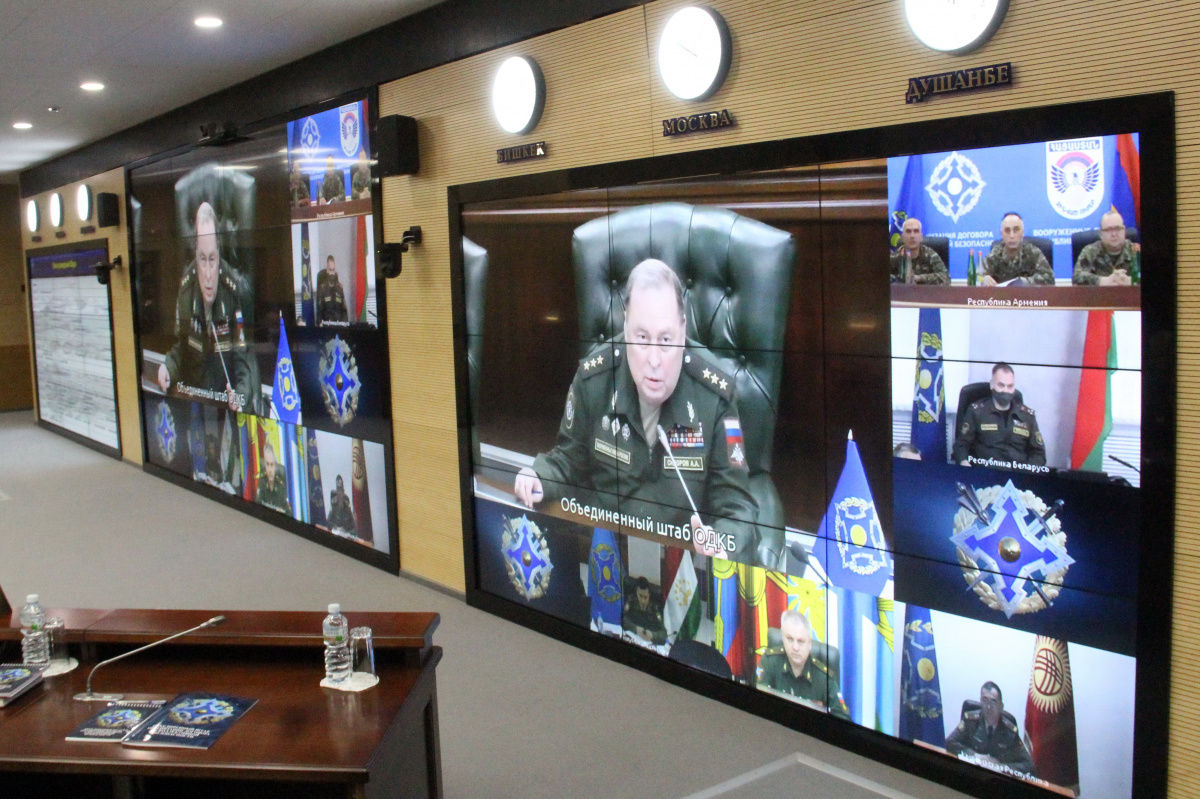On July 4, 2025, a delegation of the CSTO Secretariat visited the Central Military-Patriotic Park of Culture and Recreation of the Armed Forces of the Russian Federation "Patriot".
The Kyrgyz President Sadyr Japarov received the Ministers of Foreign Affairs of the CSTO member states and the Secretary General of the Organization in Cholpon-Ata on June 30. The meeting was attended by the Foreign Ministers of Kyrgyzstan, Belarus, Kazakhstan, Russia and Tajikistan.
On June 30, 2025, a regular meeting of the CSTO Council of Foreign Ministers was held in Cholpon-Ata (the Kyrgyz Republic) under the chairmanship of the Kyrgyz side, which was attended by the Organization's Secretary General Imangali Tasmagambetov.
Safar Umarzoda, Head of the Department for Countering Challenges and Threats of the CSTO Secretariat, took part in a special event (side-event) on "Countering Radicalization leading to terrorism and Extremism" organized by the Russian Federation on the margins of the OSCE Annual Conference on Security Review, where he reported on the measures taken by the CSTO on countering terrorism and extremism, and willingness to share the experience gained.
At the Joint Staff, an online meeting of the representatives of the national bodies of the CSTO member states was held to interact with the Crisis Response Center
 04.03.2021
04.03.2021
On March 3, 2021, a meeting was held at the CSTO Joint Staff with representatives of the national authorities of the Organization's member states authorized to interact with the CSTO Crisis Response Center.
The event was held under the general supervision of the Deputy Chief of the CSTO Joint Staff, Major General Sergei Kuprik. The CSTO Crisis Response Center, located in Moscow, was attended by representatives of the Joint Staff and the Secretariat of the Organization, the Russian Ministry of Defense, the Russian Emergency Ministry, the Federal Guard Service of the Russian Federation, and the CIS Council of Border Troop Commanders.
The heads and representatives of the leadership of the Center for Operational Management of the Armed Forces of the Republic of Armenia, the Central Command Post of the Armed Forces of the Republic of Belarus, the Central Command Post of the General Staff of the Armed Forces of the Republic of Kazakhstan, the Crisis Response Center of the General Staff of the Armed Forces of the Kyrgyz Republic, the National Center for Defense Control of the Russian Federation, the Control Center of the Operational Directorate of the General Staff of the Armed Forces of the Republic of Tajikistan took part in the meeting via videoconferencing.
In his welcoming speech, the head of the CSTO Joint Staff, Colonel-General Anatoly Sidorov, said that the format of such meetings provided an opportunity to discuss topical issues and determine areas for further work on the development of the system of interstate information interaction within the Organization. “The purpose of the meeting is to improve information interaction between the CSTO Crisis Response Center and the national bodies authorized to interact with it,” Colonel-General Anatoly Sidorov said.
In the course of the meeting, the issue of organizing advanced training for officials of the CSTO Joint Staff and national bodies authorized to interact with the CSTO Crisis Response Center was considered.
The participants of the meeting discussed topical issues of the crisis response system and outlined the main directions for improving information interaction in the CSTO format.










